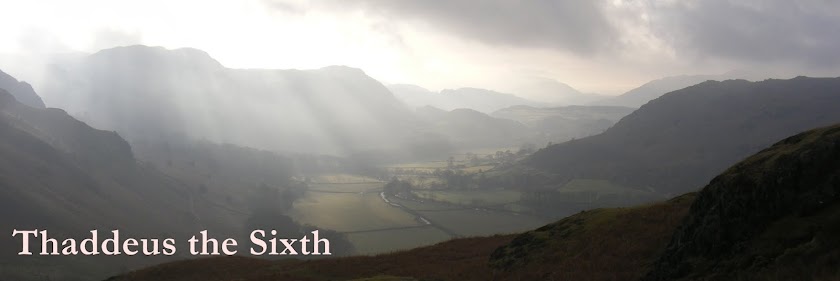Modern fantasy is often considered to have been founded by two great British authors: CS Lewis, who wrote the Chronicles of Narnia, and JRR Tolkien, who wrote the Lord of the Rings.
As George RR Martin remarked in his recent interview with Joe Abercrombie (http://www.joeabercrombie.com/2011/05/08/in-conversation-with-grrm/), they were men of their time. That’s no criticism, and we can clearly see how morality in fantasy has shifted from the immediate post-war era, when it was very black and white, to a more nuanced and less certain nature in the works of chaps like Mr. Martin and Mr. Abercrombie.
I didn’t think of this until I cast an eye over my bookshelves, but it’s slightly odd that just about every author of modern fantasy that is represented there is British or American. Obviously, there’s a language barrier for people who aren’t Anglophones, but lots of people are fluent in English without it being their first language and translation’s hardly impossible.
Shortly, I’ll have finished the present set of Space Captain Smith books and the Death Gate Cycle, and I’ll be on the lookout for something new. I’d really like to find something that originated overseas, to see whether the different literary heritage and tradition yields a different kind of story.
A good example of this would be comparing Robin Hood with Outlaws of the Marsh. They’re both stories from several centuries ago and they both feature outlaw gangs fighting against the corrupt and greedy. But there are substantial differences. For a start, the Outlaws of the Marsh are huge in number, and the book itself is around 2,200 pages long. Secondly, the Outlaws are a hugely mixed bunch, and include the entertaining psychopath Li Kui, a mad axeman with a penchant for killing as many people as possible. Thirdly, the structure of the Outlaws of the Marsh is significantly different to anything I’ve read from a Western author, of any period. Characters can be dropped for hundreds of pages and then re-enter the plot, and it takes a hell of a long time to actually discover who the main character (if you can single one man out) is. I won’t spoil the ending, but that too is something I would never have expected from a Western writer.
I’m not knocking the Anglo-Saxon approach at all. I’m glad that British writers essentially founded a modern genre and continue to contribute to it in a major way, but I am curious to see how a Chinese or Arabic or African approach to a fantasy story might differ to that of someone British or American.
I’m also thinking of getting some more Greek myths. I only have the Iliad, Odyssey and a quartet of plays by Euripides right now.
Thaddeus

No comments:
Post a Comment